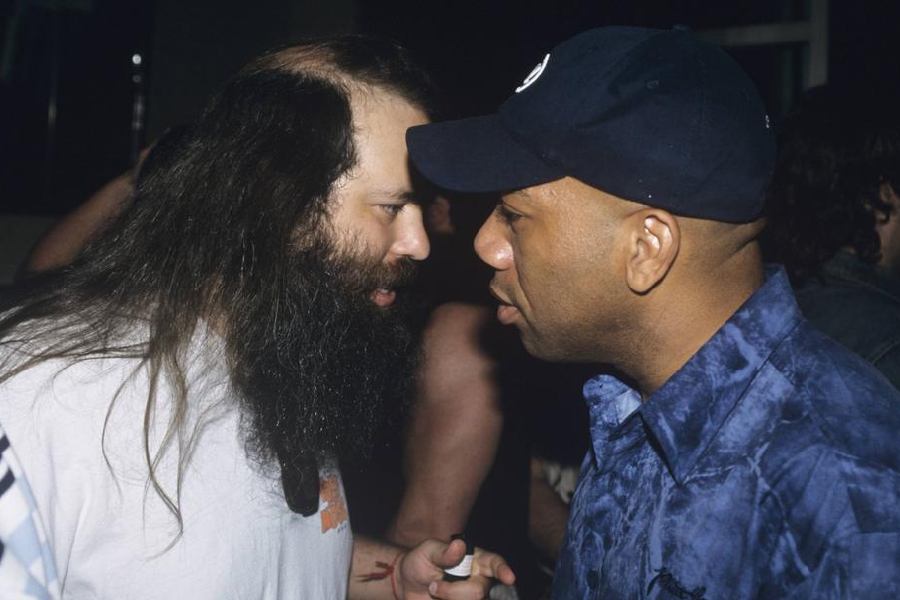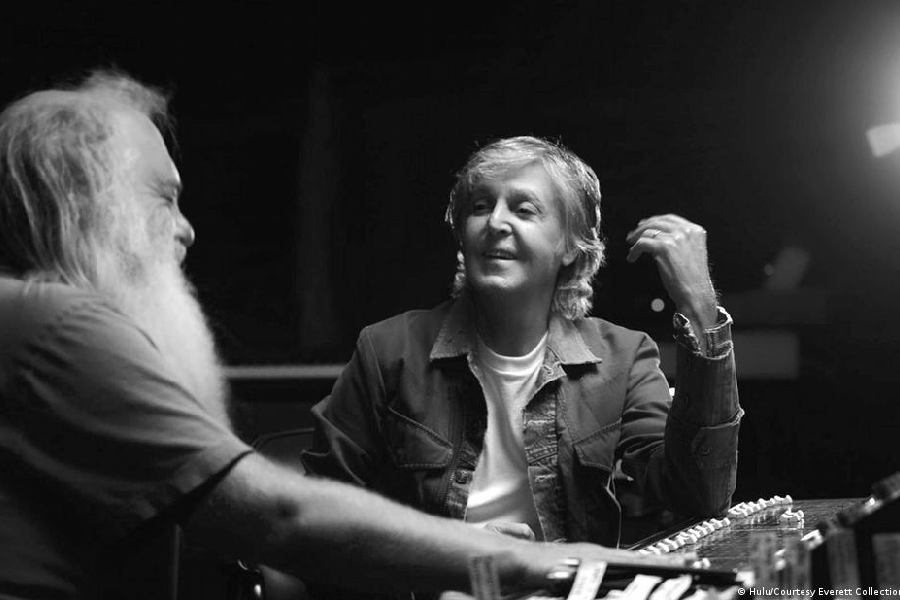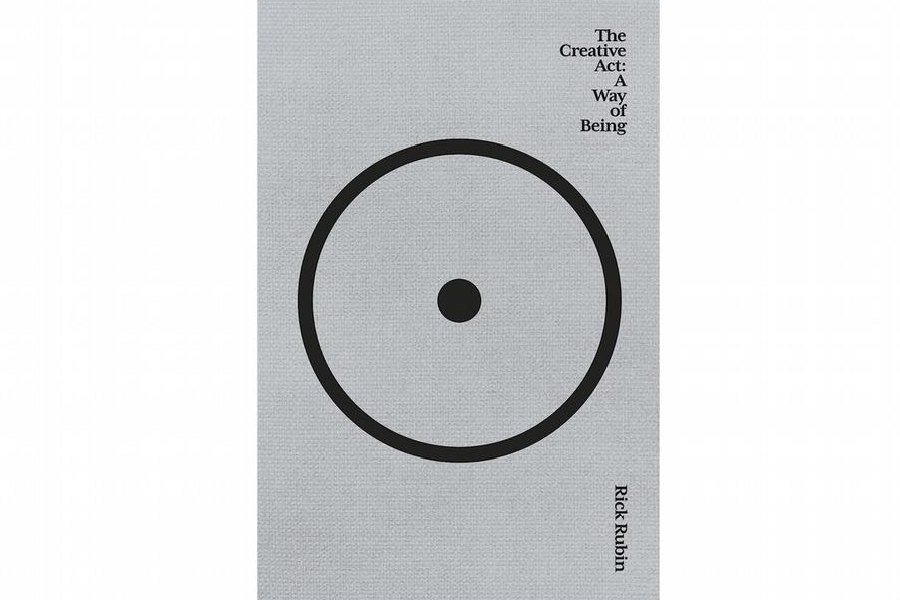
Rick Rubin | How to unleash creativity: Rick Rubin shares tips in his self-help book ‘The Creative Act’ dws
Music producer Rick Rubin, the mastermind behind the Beastie Boys, was involved with Johnny Cash’s comeback and produced for the world’s top stars. His self-help book “The Creative Act” offers insight into his art.
“I set out to write a book about what to do to make a great work of art. Instead, it revealed itself to be a book on how to be,” writes Rick Rubin about his approach to “The Creative Act: A Way of Being.”
You can pretty much find a best-selling self-help book about anything these days, from decluttering your mind to your wardrobe. Sometimes self-improvement book themes seem so trite, it leaves you thinking — is this really what’s going to make you transform your life?
But since the prolific US music producer is already seen by many in the industry as a guru, it only makes sense to have him share his wisdom with the masses. “The Creative Act: A Way of Being” brings creativity into a new realm of self-discovery.
Rubin started his career in the 1980s as a 20-year-old university student, when he founded his record label, Def Jam, in his dorm room in New York.
After Russell Simmons joined the company, things took off. Rubin discovered the Beastie Boys, and convinced them to abandon punk and turn to rap.
Rubin with his business partner, Russell Simmons: Their record label Def Jam led to the Beastie Boys’ breakthrough
Def Jam played a pivotal role in popularizing hip hop, by signing acts including LL Cool J, Run-DMC and Public Enemy, and later Jay-Z and Foxy Brown.
Rubin helped Aerosmith make a comeback in 1986, recording a remake of their 1975 song, “Walk This Way,” with the rap trio Run-DMC.
Later, Rubin sold his shares in Def Jam for a three-digit million sum, moved to Los Angeles, started a new label, and also worked as a producer for artists signed to other record labels.

Rubin and Paul McCartney discuss the ex-Beatle’s work in the documentary series ‘McCartney 3,2,1’
In the 1990s, the song-doctor with the long untamed beard produced the Red Hot Chili Peppers album “Blood Sugar Sex Magik” that shot the band into international popularity. Rubin’s touch also allowed country music icon Johnny Cash to make a major comeback with his award-winning “American Recordings” album series.
He helped the heavy metal band Metallica out of a musical crisis with the 2008 album “Death Magnetic,” and produced works with many more of the world’s top stars. His CV also includes collaborations with Tom Petty and the Heartbreakers, Mick Jagger, Eminem, Rage Against the Machine, U2, Ed Sheeran, Lady Gaga, Adele and many more.
Rubin has said in interviews that he doesn’t even know how to play an instrument, nor does he have much of an idea about studio technology. To produce an album, he places importance on how he feels.
In his book, he puts it this way: “When the work has five mistakes, it’s not finished. But when a work has eight mistakes, it might be. Sometimes deciding a work is finished is more about surrender than victory.”
Rick Rubin is a spiritual man, drawing inspiration from Eastern philosophy and cosmic influences. The studio on his ranch in the hills of Malibu is called Shangri-La, named after the fictional paradise in the high Tibetan mountains in James Hilton’s novel “Lost Horizon.”
Rubin has enough knowledge and experience to write 10 books. It is said that some publishers hoped he’d spice up his book with anecdotes of big names he’s worked with to make it more commercial.
But Rubin avoids name-dropping and he also doesn’t think he has all the answers. In the preface, he advises readers to take on what helps them and leave the rest.
Various obstacles, including self-doubt and everyday distractions, get in the way of living out our best creative selves, according to Rubin. He has developed his own strategies to deal with creative blocks and the pressure to exceed or at least match the success of the last album.
Despite all the hits, Rubin’s portfolio is by no means limited to successful records. For him, as he states in his book, success is measured neither by popularity nor by money, but internally.
In the case of a creative block, Rubin recommends visualizing a completely different audience for a song that’s being worked on, or simply writing fewer lyrics, because sometimes letting go is the best way to stick to a project. Sometimes he simply turns off the lights in the studio to change the atmosphere.
Nevertheless, creativity also requires a certain level of discipline for which Rubin lays down some ground rules, even though he later in the book contradicts himself by writing that artistic creation is based on disregarding rules, letting them go and subverting them.
Some of the wisdom he shares in “The Creative Act” might appear too simplistic, including truisms such as, “The better you feel, the better things go.”

The meditative advice of ‘The Creative Act: A Way of Being’ is a good read for the summer
Other parts of the book give more substantial advice, though they often echo words of wisdom already heard elsewhere: “Creativity can just be a relationship with yourself. No one else needs to be in the equation,” he writes. “Sometimes the therapeutic value of making the work is the outcome. And that’s enough.”
The producer, whose net worth is estimated at $300 million, often emphasizes in the book that creativity shouldn’t be about sales: “Putting commercial concerns before personal taste is a losing battle.”
Anything can be a source of inspiration, he says, especially nature. Rubin recommends always walking through life attentively and trying things out without worrying about the meaning or a measurable result. It stands in contrast to society’s capitalistic values.
Obviously, not every creative undertaking requires a fat bank account. Nevertheless, the challenge for ordinary people in implementing Rubin’s lessons is likely to be the daily grind, which is not exactly known as a driving force for creativity. Creative contemplation is a luxury that won’t pay the bills.

Rubin and the Red Hot Chili Peppers collaborated closely for years





